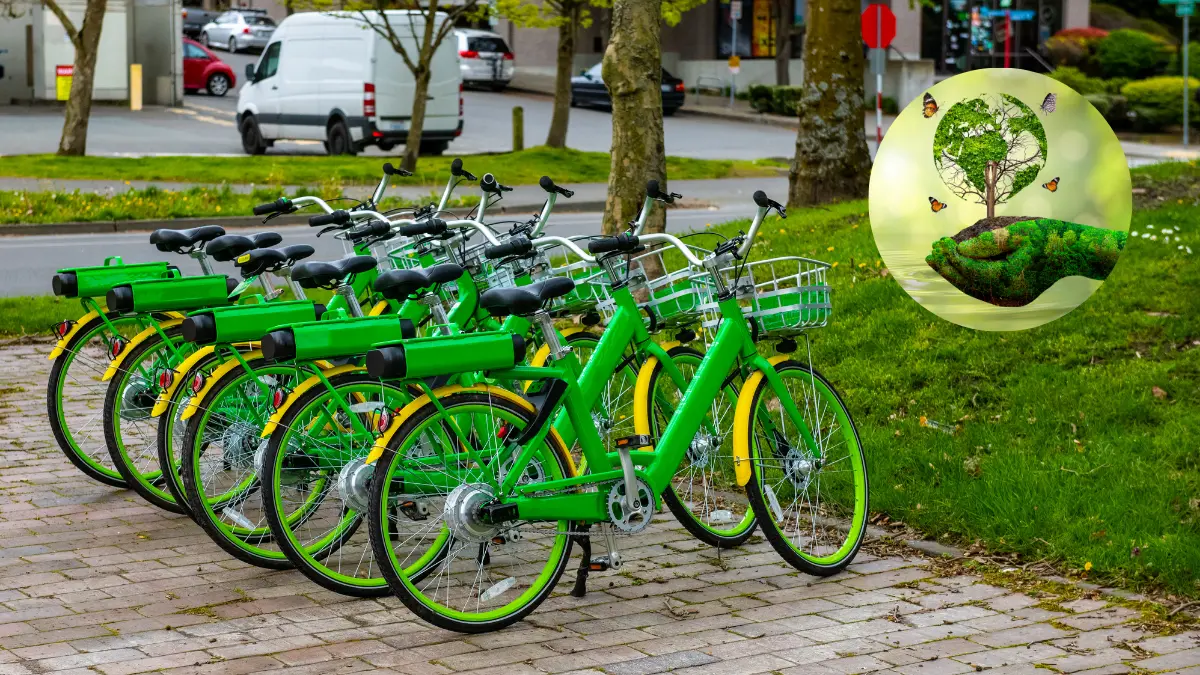 In recent years, there has been a growing global concern about urban mobility and its impact on the environment.
In recent years, there has been a growing global concern about urban mobility and its impact on the environment.
As cities continue to expand and traffic congestion worsens, it has become crucial to explore sustainable alternatives that not only address these challenges but also promote a greener and healthier future.
One such solution that holds immense potential is electric utility bicycles.
The concept of sustainable urban mobility extends beyond emission reduction, encompassing the development of efficient, accessible, and inclusive transportation systems that prioritize environmental stewardship.
Electric utility bicycles are emerging as a leading solution in this movement, combining functionality, convenience, and eco-friendliness. In India, a rapid surge in electric vehicle (EV) adoption is anticipated within the next 2-3 years.
This growth will be propelled by factors such as the growing affordability of EVs, government-supported incentives, and a rising consumer inclination toward embracing environmentally friendly transportation alternatives.
Electric Utility Bicycles- Reshaping Urban Transportation
Electric utility bicycles have the potential to revolutionize the way we navigate cities.
With their electric-assist capabilities, these bicycles enable riders to effortlessly cover longer distances, conquer challenging terrains, and carry heavy loads.
They offer a viable alternative to traditional modes of transportation, such as cars or motorcycles, particularly for short to medium-distance commutes within urban areas.
Electric Utility Bicycles- Promoting a Greener Future
One of the most significant advantages of electric utility bicycles is their positive environmental impact.
By replacing conventional vehicles with electric bicycles, we can significantly reduce carbon emissions, noise pollution, and congestion in our cities.
These bicycles run on clean energy, contribute to improved air quality, and help create a more sustainable and livable urban environment.
Enhancing Accessibility and Health
Electric utility bicycles have the potential to make urban transportation more accessible to a wider range of individuals.
They provide an inclusive mode of travel for people of different age groups, physical abilities, and fitness levels.
By promoting active transportation, electric bicycles also contribute to improved physical and mental health, encouraging individuals to incorporate exercise into their daily routines.
Challenges and Opportunities
While the adoption of electric utility bicycles in urban environments is gaining momentum, there are still challenges to overcome.
These include infrastructure development, ensuring safety for riders, and addressing regulatory frameworks.
However, these challenges present opportunities for collaboration among policymakers, urban planners, and bike manufacturers to create a supportive ecosystem for electric bicycles.
Electric Utility Bicycles – Economic Benefits
In addition to the environmental advantages, electric utility bicycles also offer economic benefits. Their lower operating and maintenance costs compared to traditional vehicles make them a cost-effective option for individuals and businesses.
By promoting the use of electric bicycles, we can contribute to economic growth, job creation, and reduced dependence on fossil fuels.
As we look toward the future, it is essential to embrace sustainable solutions that can transform our cities and promote a greener way of life.
Electric utility bicycles have emerged as a game-changer in sustainable urban mobility, offering a practical and eco-friendly mode of transportation.
By encouraging their adoption, investing in infrastructure, and fostering a culture of biking, we can create cities that are not only efficient and connected but also sustainable and livable for generations to come.
Let us pedal towards a greener future 🌳, one electric utility bike ride at a time. 🚲




